Analysis of ASIC v Whitlam Case in Corporations Law - HA3021
VerifiedAdded on 2023/05/28
|17
|1207
|331
Report
AI Summary
This report provides a comprehensive analysis of the case ASIC v Whitlam [2002] NSWSC 591, focusing on the breach of director's duties under the Corporations Act 2001 (Cth). The case involved Mr. Nicholas Whitlam, a director of NRMA Limited, who was accused of violating his duties by failing to act in accordance with the shareholders' instructions regarding a resolution to increase director remunerations. The report examines the relevant sections of the Act, including sections 180, 181, and 182, which address the duties of care and diligence, good faith, and proper use of powers. The Supreme Court of NSW initially found Whitlam liable, but this decision was later overturned by the Court of Appeal. The report explores the judgments of both courts, highlighting the importance of director duties and the implications for proxy relationships in Australian commercial law. The analysis also includes relevant references to legal sources and academic literature to support the arguments and findings of the case.
1 out of 17
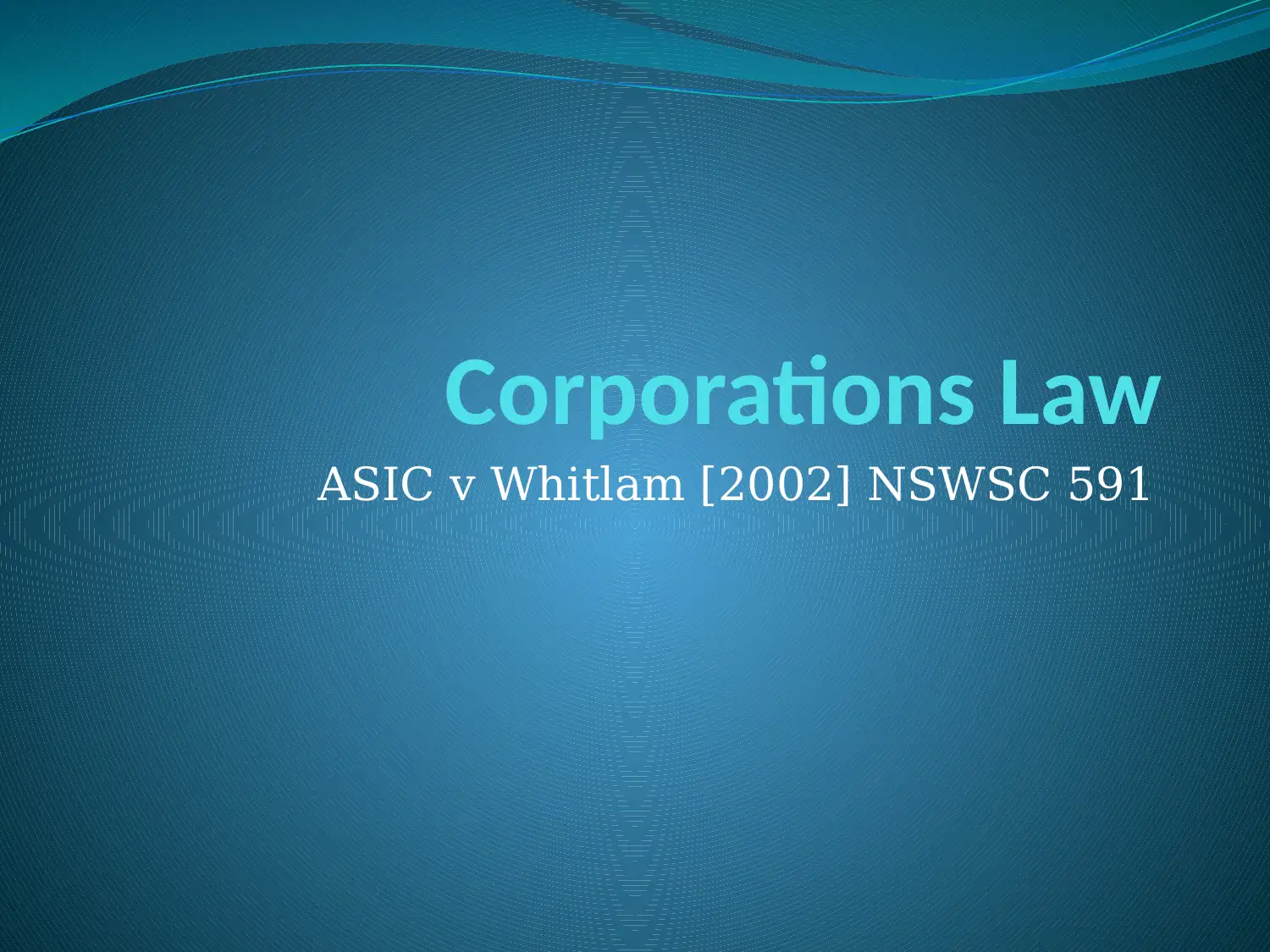
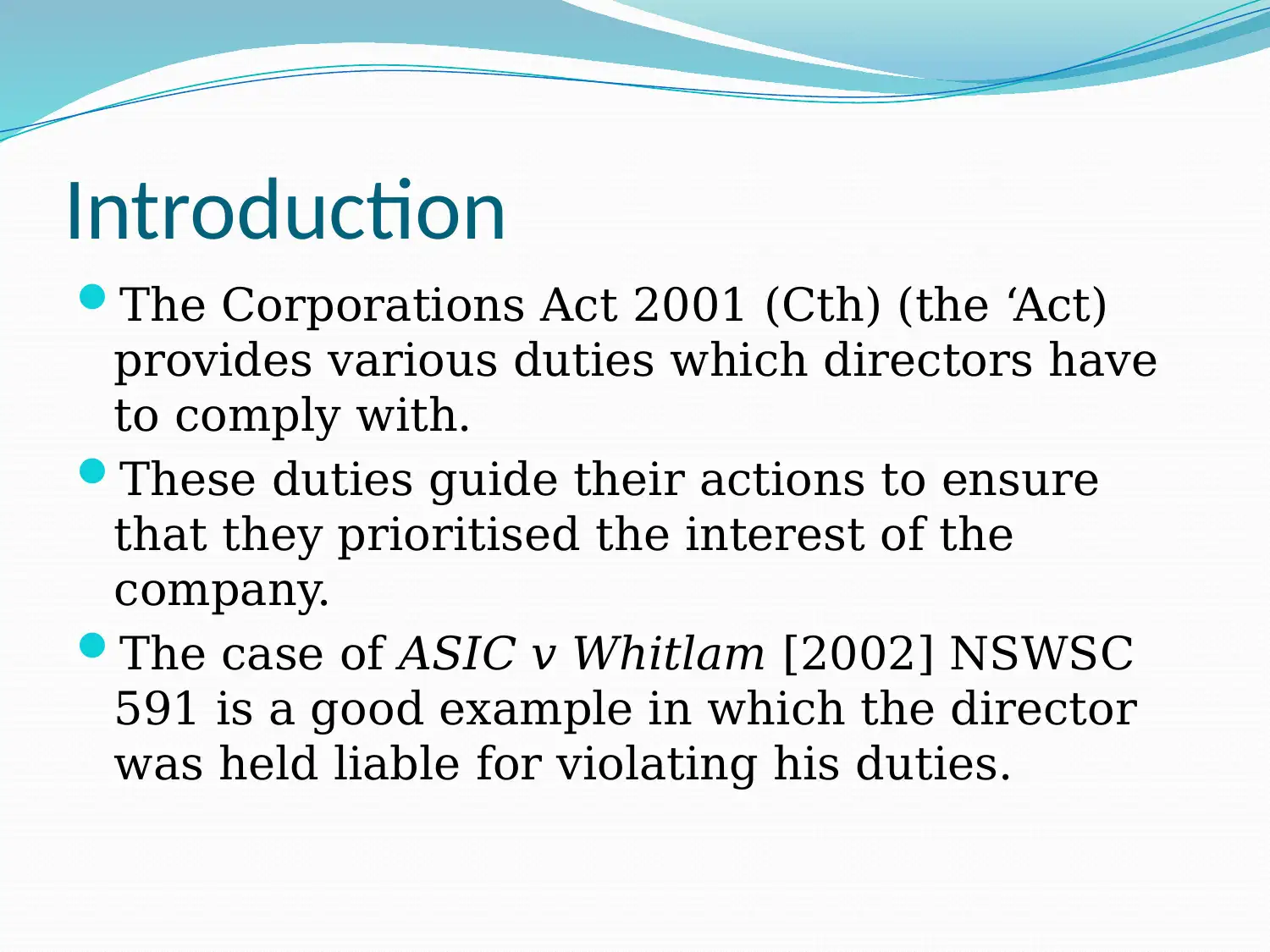
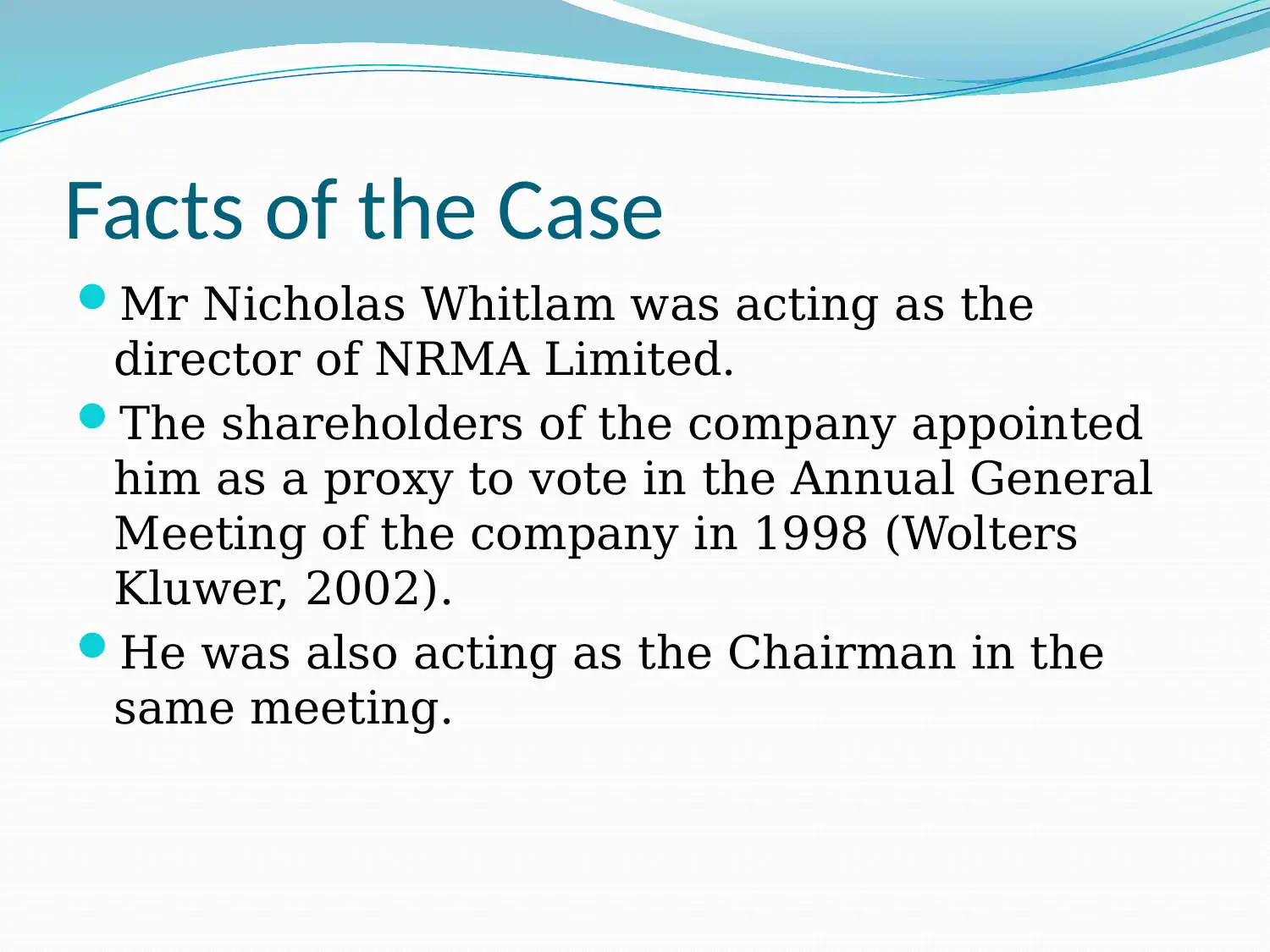

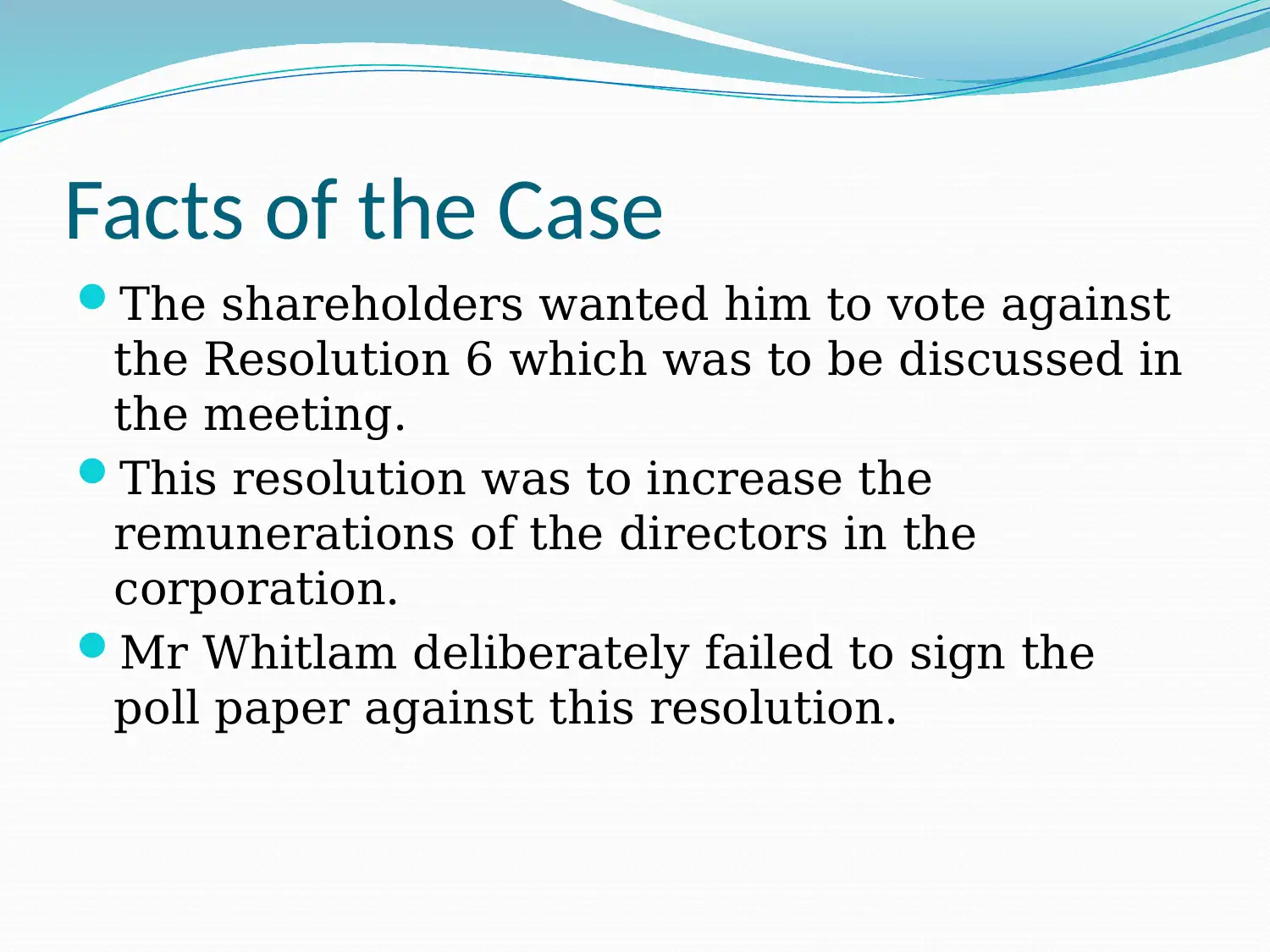
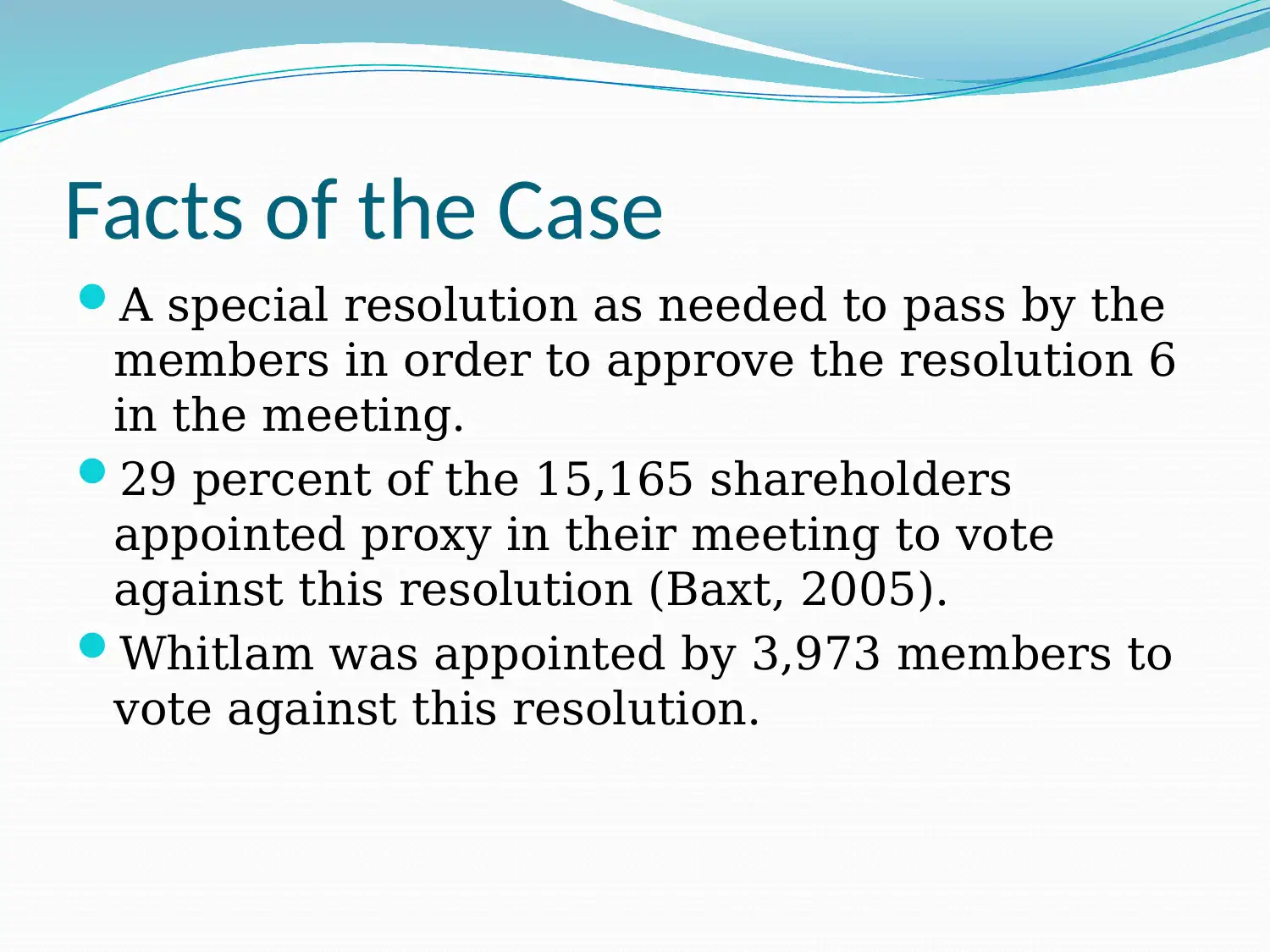
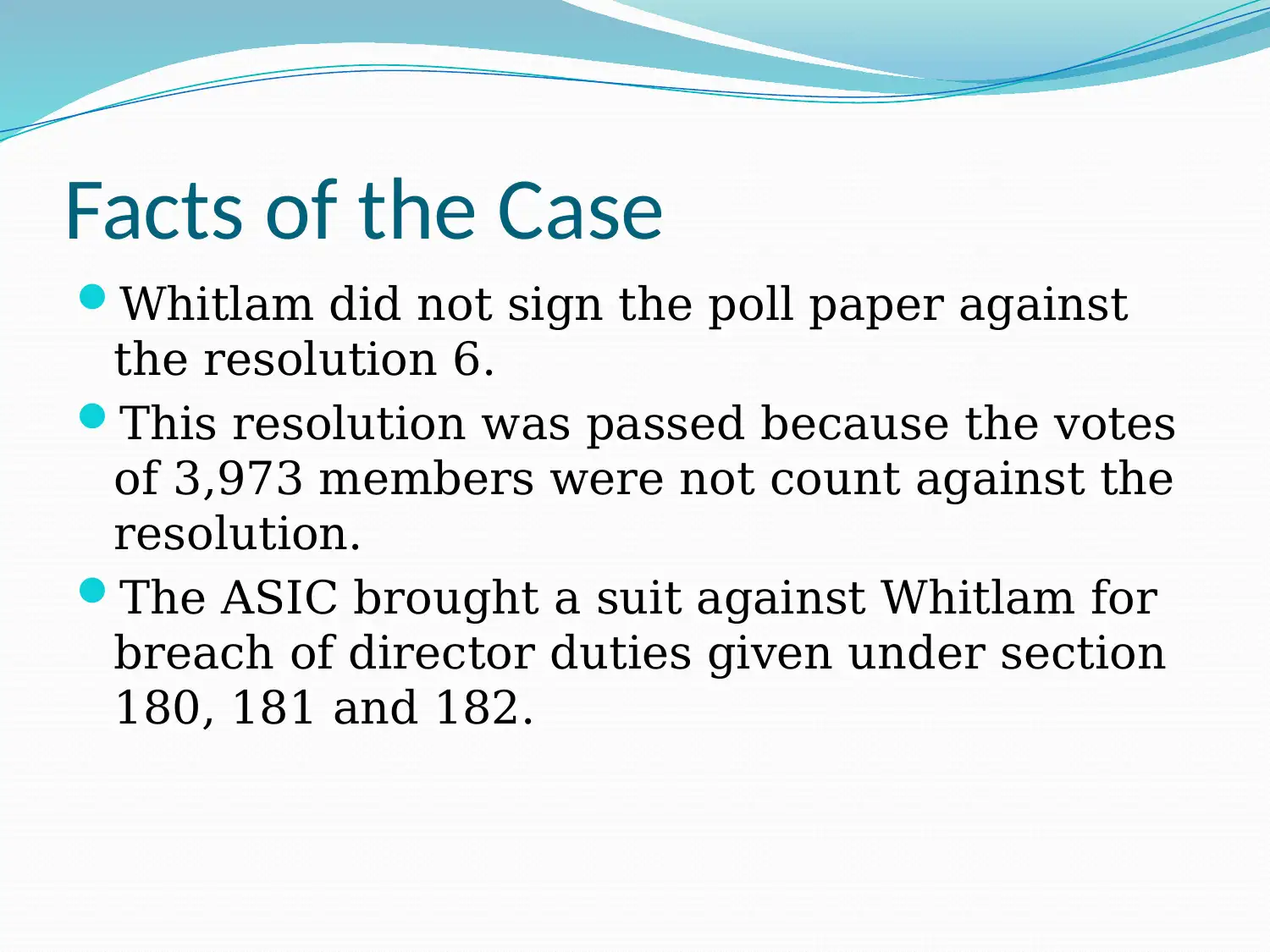
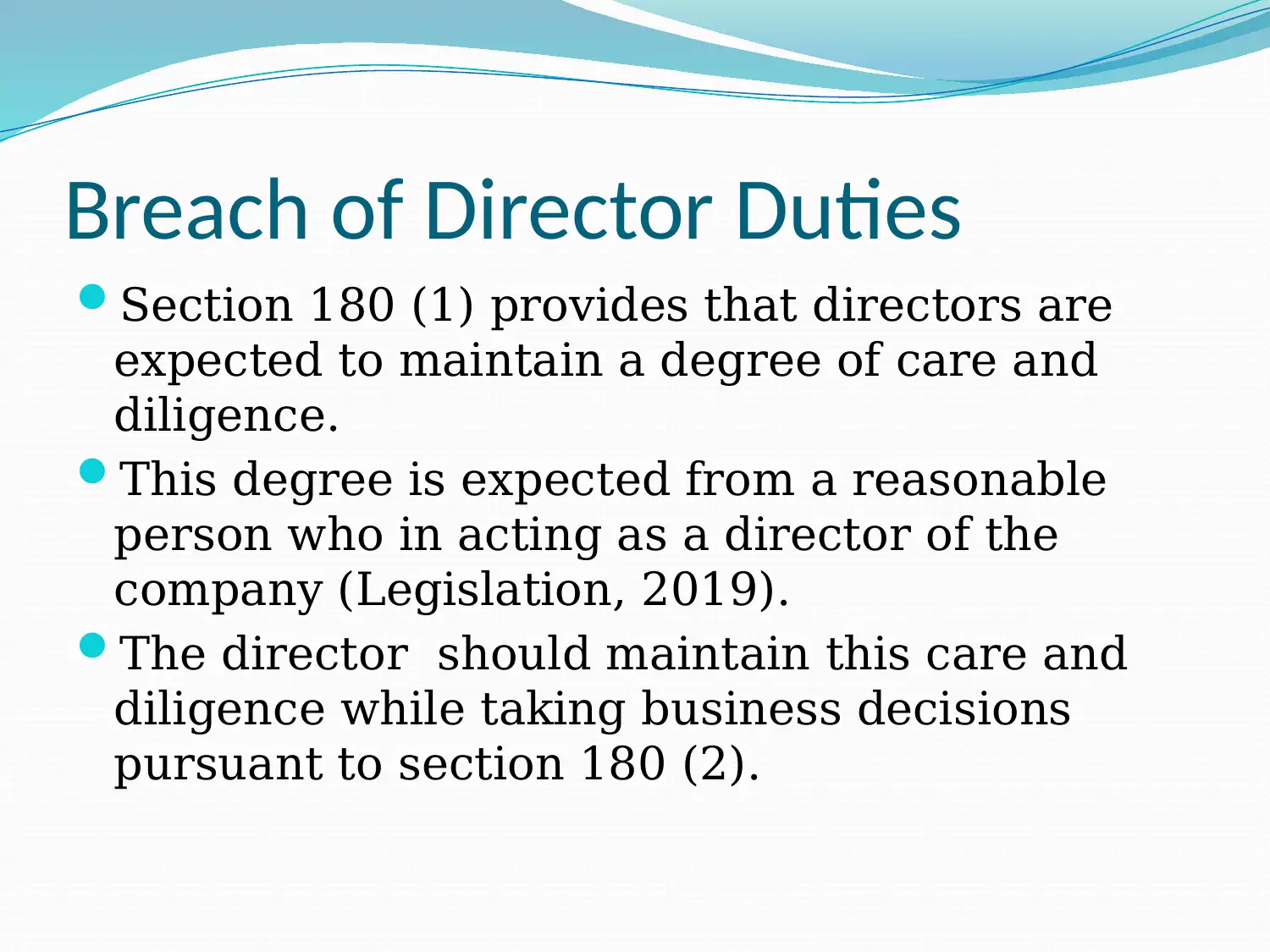
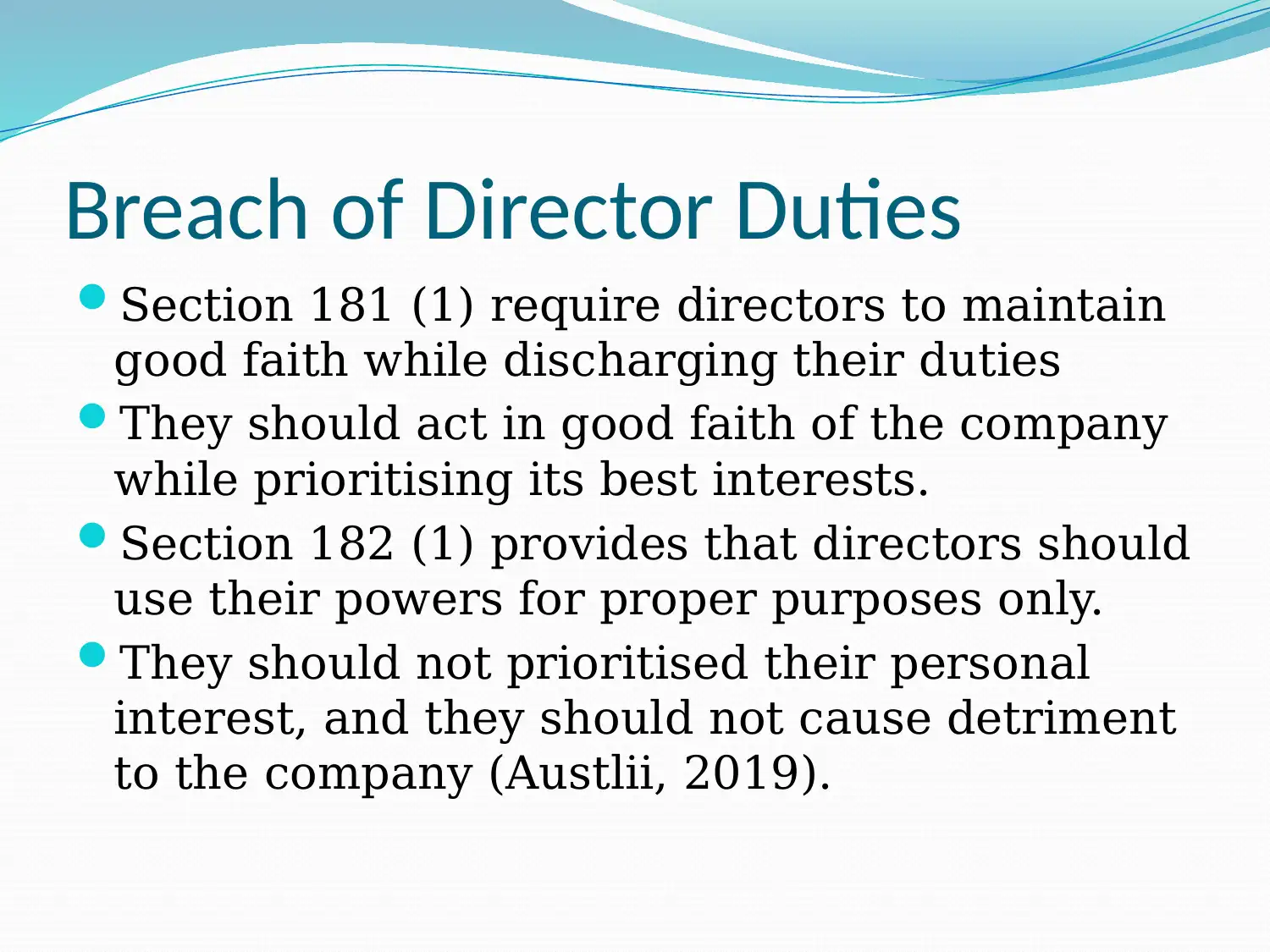
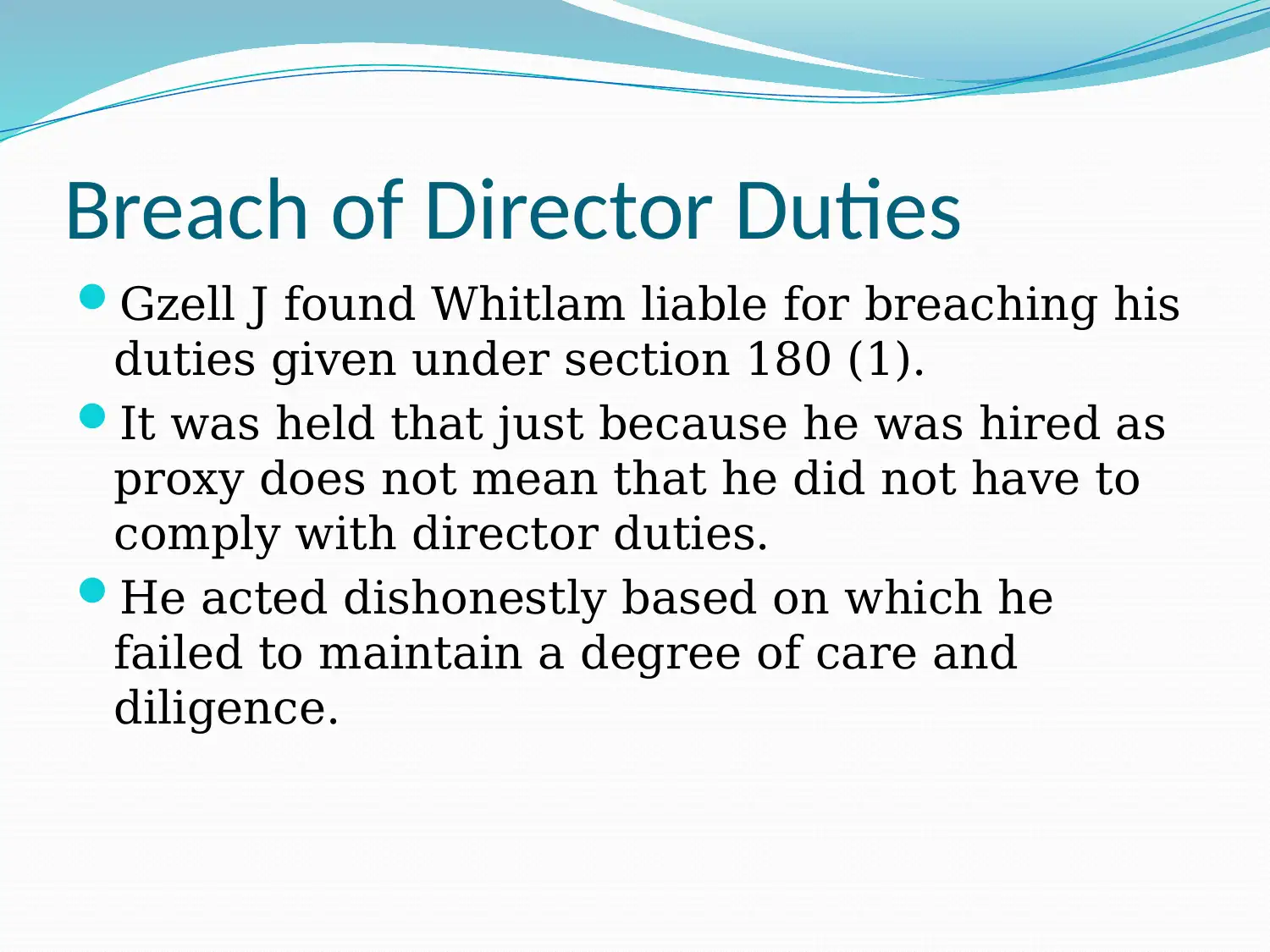
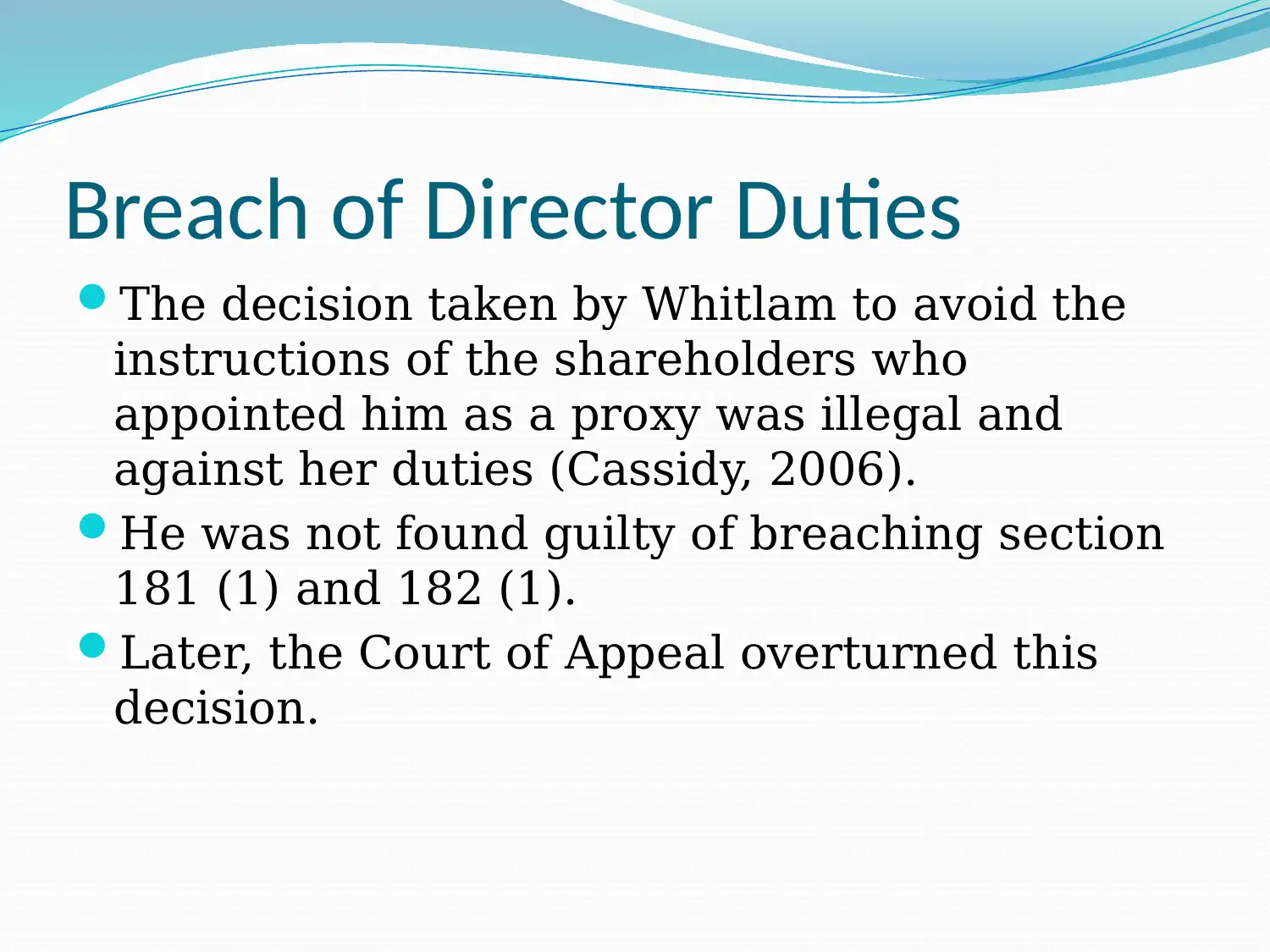
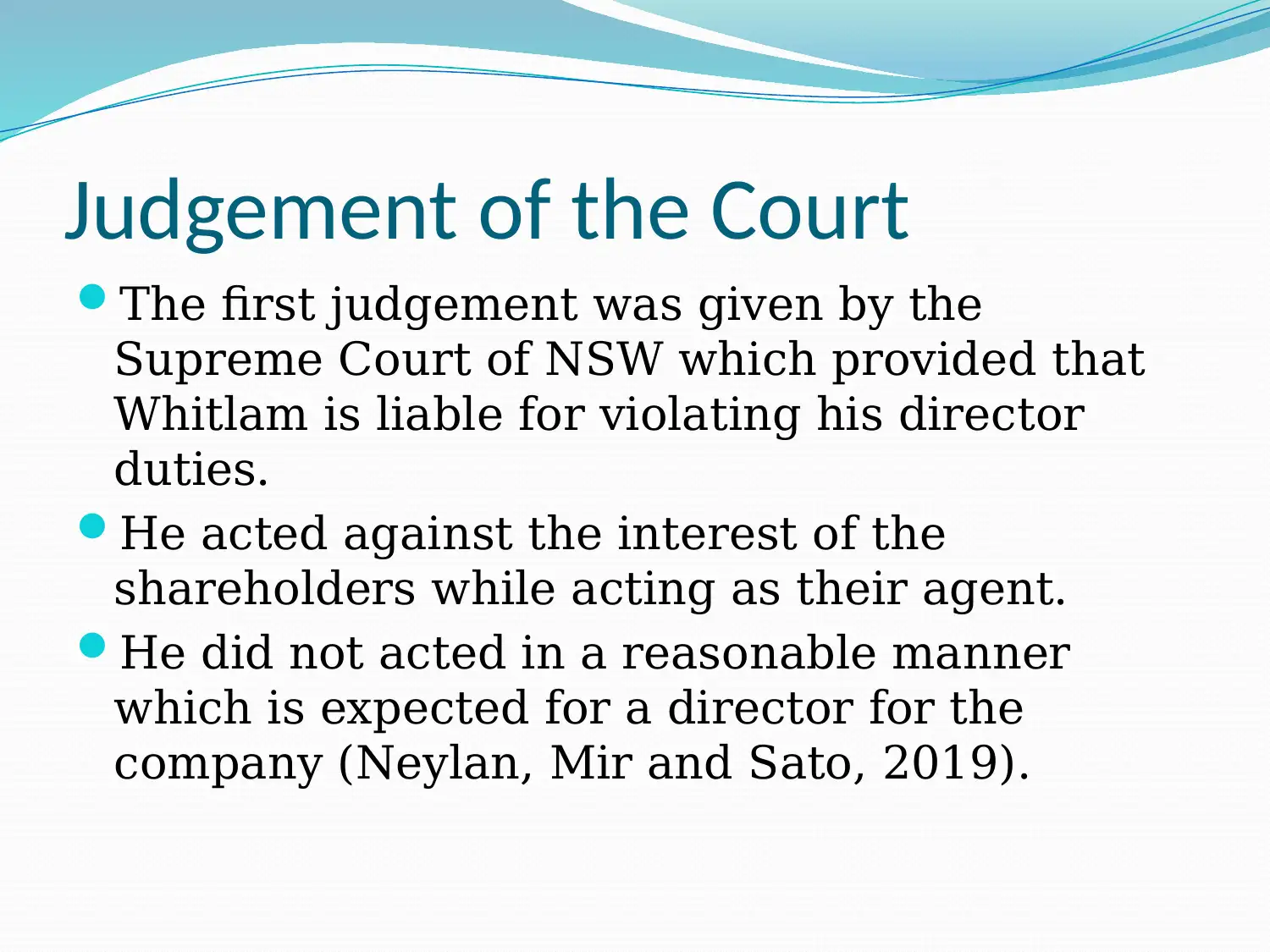
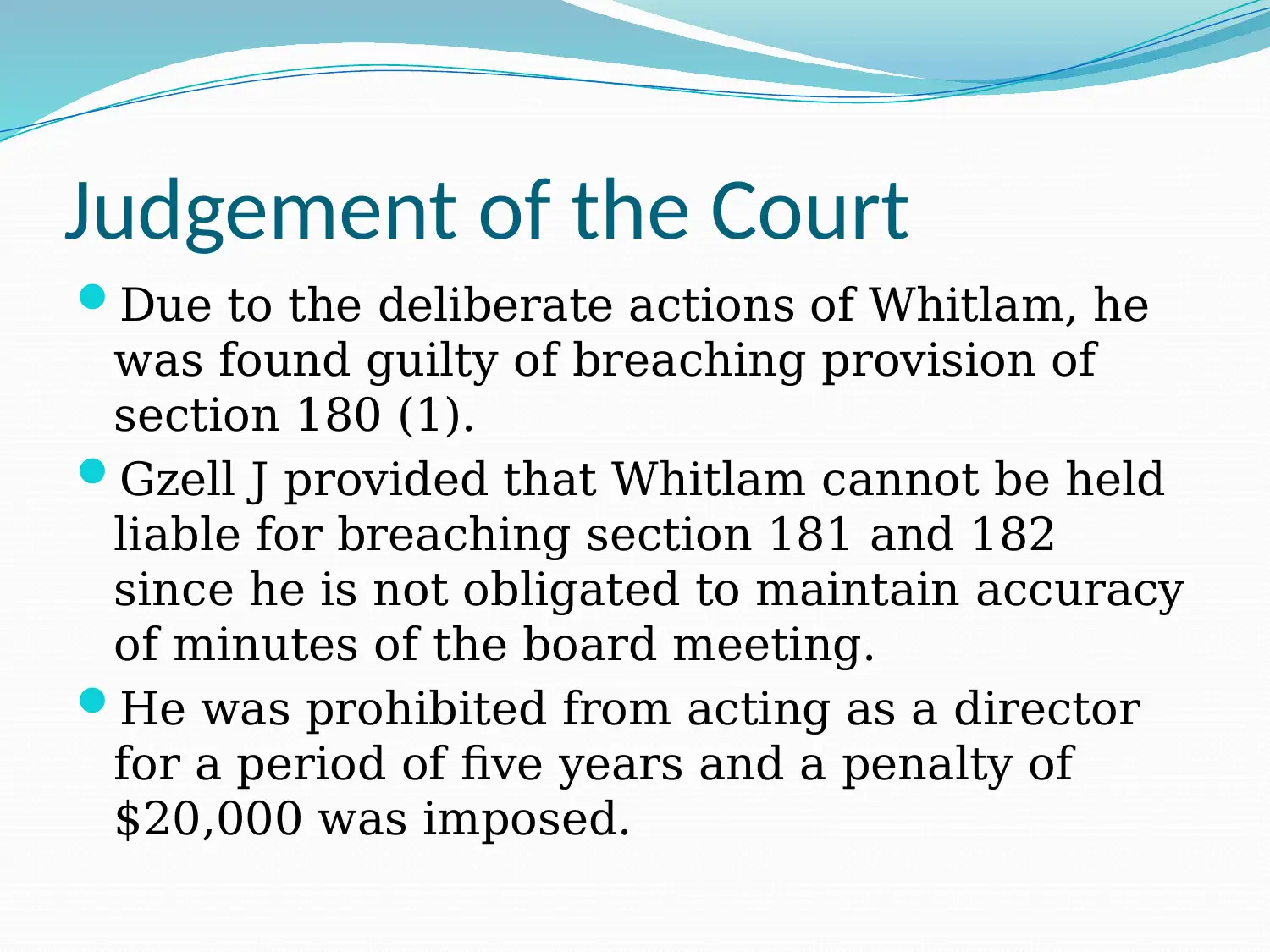






![[object Object]](/_next/static/media/star-bottom.7253800d.svg)